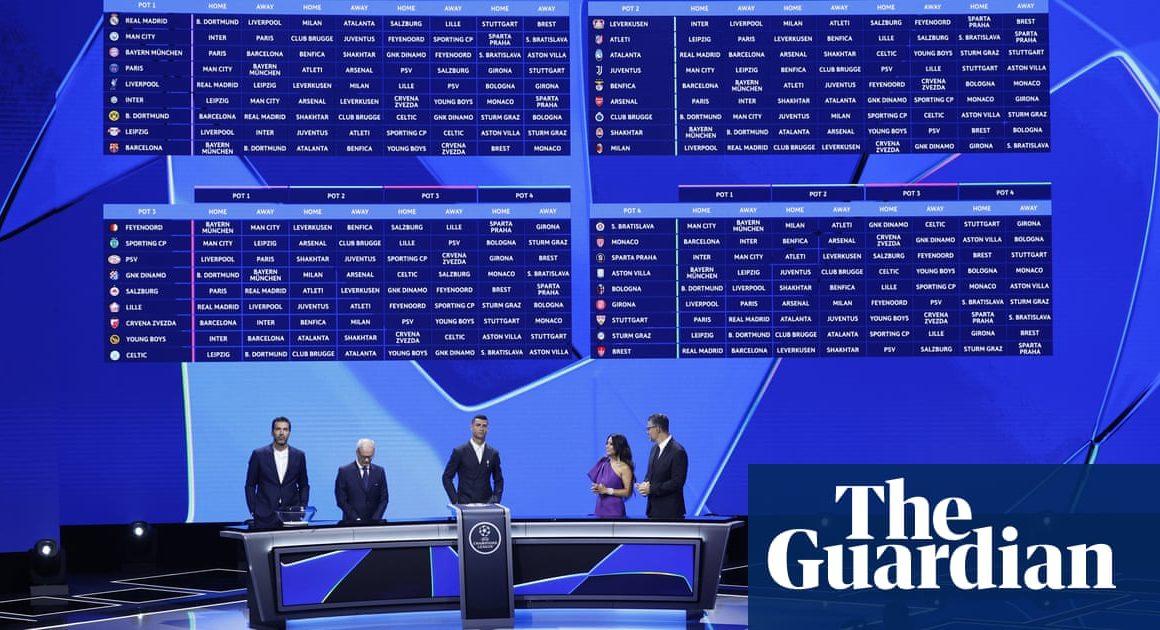Fastest pace of growth in UK house prices since December 2022
Newsflash: UK house prices rose at the fastest annual rate since the end of 2022 last month.
Lender Nationwide has reported that annual house price inflation rose to 2.1% in July, up from 1.5% in June.
That’s the fastest pace of growth since December 2022, when the housing market was reeling from the aftermath of Liz Truss’s mini-budget which drove up borrowing costs.
On a monthly basis, rose by 0.3% in July alone, with the average price of a property sold rising to £266,334.

Nationwide’s figures are based on mortgage approvals, so won’t track cash buyers.
Robert Gardner, Nationwide’s chief economist, points out that prices are still around 2.8% below the all-time highs recorded in the summer of 2022.
“Housing market activity has been holding relatively steady in recent months with the number of mortgages approved for house purchase at around 60,000 per month.
While this is still c.10% below the level prevailing before the pandemic struck, it is still a respectable pace given the higher interest rate environment.

Key events
There are nine members of the Bank of England’s monetary policy committee, and today’s vote is unlikely to be unanimous.
BNP Paribas and Deutsche Bank both predict the MPC will split 5-4, narrowly in favour of cutting interest rates from 5.25% to 5%.
At the last meeting, in June, two policymakers – Swati Dhingra and Dave Ramsden – voted for a cut, but were outvoted by the other seven.
Sanjay Raja, Deutsche Bank’s chief UK economist, told clients:
To be sure, as most economists and market participants have noted, the August decision will likely be finely balanced. No, we don’t expect a unanimous vote for a rate cut. Our baseline expectations are for a very slim majority (5-4) voting in favour of dialing down restrictive policy.
James Smith, developed market economist for ING, says today’s Bank of England decision will be a “close call”.
He expects a majority of policymakers to vote for a rate cut, telling clients:
“Some of the recent economic recovery can also be traced back to expectations of imminent rate cuts. And decent growth for the rest of 2024 relies, in part, on those cuts being delivered, a fact that won’t have been lost on BoE officials. Remember that the passthrough of higher rates has been more rapid in the UK relative to some other parts of Europe or, indeed, the US.
The bottom line is that there is just about enough in the recent data to give the Bank confidence to begin lowering rates.
ING also suggests four scenarios for today’s decision – ranging from a cut today and hints of further easing, to a hold with no guidance as to when cuts may come.

Professor Costas Milas, of the Management School at University of Liverpool, points out that new economic research suggests the Bank of England should cut interest rates today:
The BoE’s MPC has a very narrow window of opportunity (today, that is) to cut interest rates before the recently announced public sector wage increases above inflation (and the wage increases for junior doctors) trigger a wage-price spiral.
More importantly, however, brand-new research (not mine), just published in the very prestigious Journal of Monetary Economics (the “Bible” for policymakers) finds that monetary tightening in the US takes about 43 months to lower “services inflation” significantly.
So, if these results also carry over to the UK (where, for instance, “services inflation” remains high at 5.7%), the natural implication is that the MPC should cut the Base Rate immediately and be patient, that is, not worry much about service-sector inflation.
The pound is weakening as traders anticipate the Bank of England’s interest rate decision at noon today.
Sterling has dropped by over half a cent against the US dollar to $1.2795, a three-week low.
It’s also lost half a eurocent, to €1.1834.
A weakening pound could show that traders are anticipating a UK interest rate cut.
Kyle Rodda, senior financial market analyst at capital.com, says:
For the markets, a cut from the Bank of England is a matter of when and not if; however, provided the Bank of England signals it’s the beginning of a cycle, a cut would likely boost the FTSE 100 and weaken the Pound.
Alternatively, the decision to hold rates would likely inspire the greatest volatility: rates markets imply a 57% chance the Bank of England cuts tonight, and the pricing out of that move would likely undermine equities and give a shot in the arm to the Pound.
Rolls-Royce to pay dividend for first time since pandemic
Engineering group Rolls-Royce has raised its profit forecast and announced plans to pay a dividend for the first time since 2020, when it was hit by the the pandemic.
Rolls-Royce now expects to make an underlying operating profit of between £2.1bn and £2.3bn, up from previous guidance of £1.7bn-£2.0bn, as the turnaround plan implemented by chief executive Tufan Erginbilgiç gathers pace.
Shares in Rolls-Royce have jumped almost 10% in early trading.
The company has reported an operating profit of £1.65bn for the first half of this year, up from £797m in H1 2023, with its operating margin rising to 18.6% from 10.6%.
It is also reinstating shareholder distributions for the first time in four years, having suspended its divident in early 2020 when the Covid-19 pandemic rocked the airline industry and hit demand for RR’s jet engines.
Erginbilgic says:
“Our transformation of Rolls-Royce into a high-performing, competitive, resilient, and growing business is proceeding with pace and intensity.
We are expanding the earnings and cash potential of the business in a challenging supply chain environment, which we are proactively managing. We are on track to deliver our mid-term targets.
Shares in Next have jumped 7.5% in early trading after it raised its profit forecasts again this morning (see earlier post).
They’ve touched £97.66, which looks to be an alltime high.
Profits have dipped at Shell, although the energy giant has still raked in over $14bn so far this year.
Shell has reported adjusted earnings of $6.3bn for the second quarter of this year, down from $7.7bn in the first quarter of the year.
It attributes the drop in earnings to weaker profit margins from oil refining, and weaker liquified national gas (LNG) trading.
Shell chief executive officer Wael Sawan says:
“Shell delivered another strong quarter of operational and financial results. We further strengthened our leading LNG portfolio, and made good progress across our Capital Markets Day 2023 financial targets, including $1.7 billion of structural cost reductions since 2022.
Today, we have also announced a further $3.5 billion buyback programme for the next three months. We continue to demonstrate that we are delivering more value with less emissions.”
Shelll has recently paused the construction of a large biofuel plant in Rotterdam, and has been criticised for watering down a key green energy target.
Philip Evans, campaigner at Greenpeace UK, says:.
“Wildfires raging across the Arctic Circle and temperature records being broken by the day should be a wake-up call.
But Shell continues to bank billions from digging up climate-wrecking fossil fuels. Shell’s reckless pursuit of profit is causing global climate chaos – and it is planning a new drilling frenzy that will only exacerbate the crisis.
“We cannot let countries and communities that have done the least to cause climate change pay the price for Shell’s greed. The new Labour government must prove it is different to its predecessor by reining in the fossil fuel giants and imposing bold new taxes on polluters to force them to pay their climate debts at home and abroad.”
Retailer Next upgrades profit forecasts again

Sarah Butler
Next has upgraded its annual profit hopes by £20m to £980m after a better than expected second quarter helped by strong sales overseas.
The clothing and homewares retailer said it made £42m more profit than anticipated in the three months to 1 August with full price sales up 3.2% against its forecast of a 0.3% fall.
The upgrade comes after at least four profit upgrades by Next last year as the retailer outperformed a tough clothing market where many brands have struggled as consumers have reined in spending on non-essentials amid high energy costs and interest rates.
Sales in the UK were only slightly ahead of expectations – up +0.4% – but overseas sales online were much better than expected, up +21.9%.
The group also enjoyed strong growth at its online brands division Label, where sales rose almost 8% while sales in stores, which are mostly in the UK, sank by almost 5%.
Simon Wolfson, the chief executive, said he now expects group sales, including discounted goods and subsidiaries such as FatFace and Joules, to rise 6% for the full year, 2.6% more than previously indicated after completing the acquisition of FatFace and increasing its stake in Reiss during the year.
Nationwide’s house price report also shows the general election had little impact on prices or activity, says Jeremy Leaf, north London estate agent.
Leaf adds:
Today’s knife-edge decision on interest rates is much more relevant to buyers and sellers in terms of confidence to move and direction of travel for future mortgage pricing.
“Nationwide has proved a reliable long-standing indicator of house-price movements, demonstrating market resilience once again, which indicates further inherent strength over the next few months at least.”
Analyst: Consumer confidence returns to the housing market
The rise in house prices last month shows confidence is returning to the market, argues Alice Haine, personal finance analyst at Bestinvest by Evelyn Partners:
“UK house prices rose 0.3% in July, according to the latest Nationwide House Price Index, a slightly faster pace of growth compared to June’s 0.2% increase as consumer confidence returned to the housing market despite lingering affordability pressures for buyers.
Annual house price growth came in even stronger, accelerating by 2.1% in July compared to June’s 1.5% uplift – the fastest pace of growth since December 2022 – with the possibility of a rate cut today set to catalyse the market even further.
Fastest pace of growth in UK house prices since December 2022
Newsflash: UK house prices rose at the fastest annual rate since the end of 2022 last month.
Lender Nationwide has reported that annual house price inflation rose to 2.1% in July, up from 1.5% in June.
That’s the fastest pace of growth since December 2022, when the housing market was reeling from the aftermath of Liz Truss’s mini-budget which drove up borrowing costs.
On a monthly basis, rose by 0.3% in July alone, with the average price of a property sold rising to £266,334.
Nationwide’s figures are based on mortgage approvals, so won’t track cash buyers.
Robert Gardner, Nationwide’s chief economist, points out that prices are still around 2.8% below the all-time highs recorded in the summer of 2022.
“Housing market activity has been holding relatively steady in recent months with the number of mortgages approved for house purchase at around 60,000 per month.
While this is still c.10% below the level prevailing before the pandemic struck, it is still a respectable pace given the higher interest rate environment.

Preview: Knife-edge Bank of England decision
Today’s BoE interest rate decision is the first since the general election – the Bank went into purdah during the campaign, so we didn’t hear as much from its policymakers as usual.
Since the election, some members of the Bank’s nine-strong monetary policy committee have voiced concern over persistent inflationary pressures, including the Bank’s chief economist, Huw Pill.
“I think it’s still an open question on whether the timing for a rate cut is now,” he said earlier this month.
However, Swati Dhingra, consistently one of the most dovish members of the MPC, warned this month that it was time for the Bank to “stop squeezing living standards” and cut interest rates.
Here’s our preview of today’s decision:
Introduction: Bank of England sets interest rates today
Good morning, and welcome to our rolling coverage of business, the financial markets, and the world economy.
UK borrowers may get some relief from high interest rates today, but it could be a close call.
The Bank of England is due to announce its latest monetary policy decision at noon today, and policymakers might vote to cut rates, economists suggest.
It’s a knife-edge decision, though, with the City split over whether we’ll see the first rate cut since 2020 today; the Bank could leave borrowing costs unchanged until its next meeting in mid-September.
Bank Rate is currently 5.25%, a 16-year high, where it has been pegged for the last year, to fight inflation.
Price rises have slowed to normal rates again, with CPI inflation running at the Bank’s 2% target in June, meaning a cut could be justified. The recent slowdown in wage rises could also tee up a rate cut.
However, the BoE may be concerned that service sector inflation, at 5.7%, remains too high to make a rate cut wise.
Last night, the US Federal Reserve left US interest rates on hold, but hinted that
The money markets this morning indicate there’s a 55% chance that the Bank of Engand cuts rates to 5% today, and a 45% chance that it leaves them on hold.
Overnight index swaps are pricing in a 64% probability of a cut.
Professor Andrew Angus at Cranfield School of Management says the Bank faces a dilemma::
“The current economic growth presents the Bank of England with an interest rate paradox. One reason for the economy’s stronger than expected performance is the expectation that rates will fall this Thursday, having been stubbornly sat at 5.25% for the last 12 months.
But persistent challenges, such as rising wages and strong service sector prices, could push the Monetary Policy Committee to be more cautious. It’s a Catch-22 situation: if the BoE doesn’t follow through, it could send shockwaves through the market.”
But…S&P Global Market Intelligence expects the BoE to maintain its Bank Rate at 5.25% at tomorrow’s meeting, with the first cut likely to occur in September.
They explain:
We acknowledge it is a close call after several Monetary Policy Committee (MPC) meeting who voted against a proposition for a 25-bp rate cut described their decision as “finely balanced” in the June meeting. This could be interpreted as a sign that they are closer to voting for a rate cut.
However, earnings and inflation developments since last month’s meeting suggest a vote for a rate cut tomorrow would be a risky decision with the fundamentals not yet in place to deliver medium-term price stability. The BoE needs to avoid any collateral damage to its inflation-bursting credentials by cutting rates too soon, resulting in a damaging start stop monetary loosening cycle.”
After being at 5.25% since August 2023, eyes are on the Bank of England’s base rate decision this coming Thursday.
Will rates…?
— Fidelity UK (@Fidelity_UK) July 30, 2024
The agenda
-
9am BST: Eurozone manufacturing PMI for July
-
9.30am BST: UK manufacturing PMI for July
-
Noon BST: Bank of England interest rate decision
-
12.30pm BST: Bank of England press conference
-
1.30pm BST: US weekly jobless claims report











